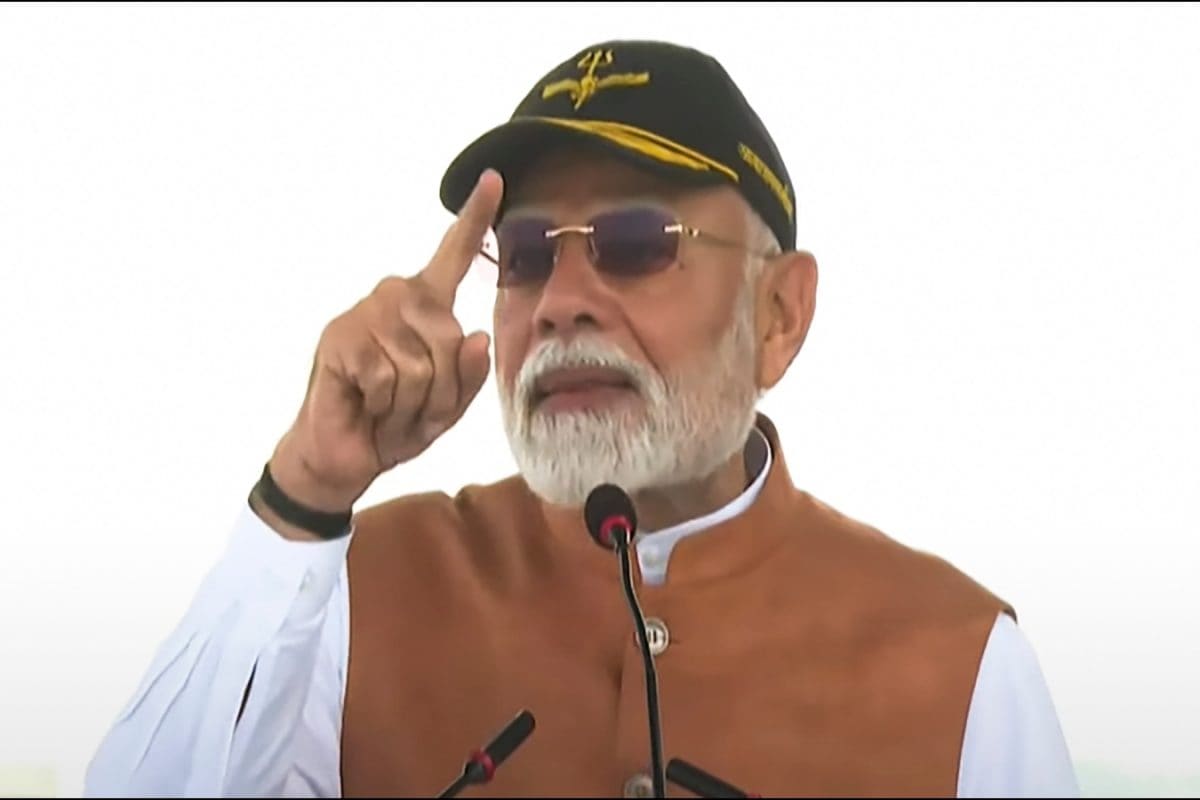

Prime Minister Narendra Modi's visit to Bikaner on May 22, 2025, holds significant strategic and symbolic importance. The visit, which includes a stop at the Indian Air Force's (IAF) Nal Airbase, underscores the government's commitment to national security, regional development, and honoring the armed forces. Located approximately 150 km from the Pakistan border, the Nal Airbase is a crucial component of India's western security architecture.
The Prime Minister's visit to Nal Airbase occurs in a strategically sensitive time frame, following "Operation Sindoor," India's recent military operation targeting terrorist camps in Pakistan. The location of Bikaner, near the international border, serves as a potent symbol of India's resolve and resilience. Union Minister Arjun Ram Meghwal highlighted the importance of the visit, noting previous drone intrusion attempts by Pakistan in the region, making PM Modi's presence a strong message of vigilance and determination. Furthermore, the Prime Minister's visit follows a terrorist attack in Pahalgam a month prior, adding another layer of significance to his engagement with the armed forces and the region.
During his visit, PM Modi is scheduled to interact with Air Force personnel stationed at Nal Airbase, boosting their morale and reaffirming the nation's support for their unwavering service. This interaction is particularly meaningful in light of claims made by Pakistan regarding the destruction of the airbase, which the Prime Minister's visit aims to disprove, reinforcing the truth and bolstering the confidence of the forces.
Beyond its strategic importance, the Prime Minister's Bikaner visit is also marked by the inauguration and foundation laying of multiple development projects worth over Rs 26,000 crore. These projects span across various sectors, including infrastructure, railways, roads, and clean energy, demonstrating a holistic approach to regional development. Specifically, the projects include 103 Amrit Bharat railway stations, solar energy facilities, and roadways connecting the Indo-Pak border. These initiatives are designed to enhance connectivity, improve infrastructure, and promote clean energy in the region.
One of the key highlights of the visit is the virtual inauguration of over 100 redeveloped railway stations across 18 states under the Amrit Bharat Station Scheme, with a cumulative cost exceeding Rs 1,100 crore. Eight of these stations are located in Rajasthan, including the Deshnok Railway Station, which has been redesigned to reflect the region's architectural heritage. The Prime Minister will also flag off the Bikaner-Mumbai express train, further enhancing connectivity and easing travel for the region's residents.
In addition to infrastructure projects, PM Modi will also lay the foundation stones for projects aimed at upgrading and maintaining 12 state highways, covering 757 km with an investment of ₹3,240 crore. These projects will significantly improve regional connectivity, facilitating smoother transportation and boosting economic activity.
The Prime Minister's itinerary includes a visit to the Karni Mata Temple in Deshnok for prayers, reflecting his commitment to cultural heritage and spiritual connection. Following this, he will address a public rally in Palana, where he is expected to elaborate on the development projects and their impact on the region.
The Bikaner visit is characterized by heightened security measures, with thorough checks on all vehicles entering the city and aerial surveillance to ensure the safety and security of all attendees. The district administration has also made extensive arrangements to combat the extreme heat, including setting up water stations, air coolers, and medical aid, demonstrating a commitment to the well-being of the people.